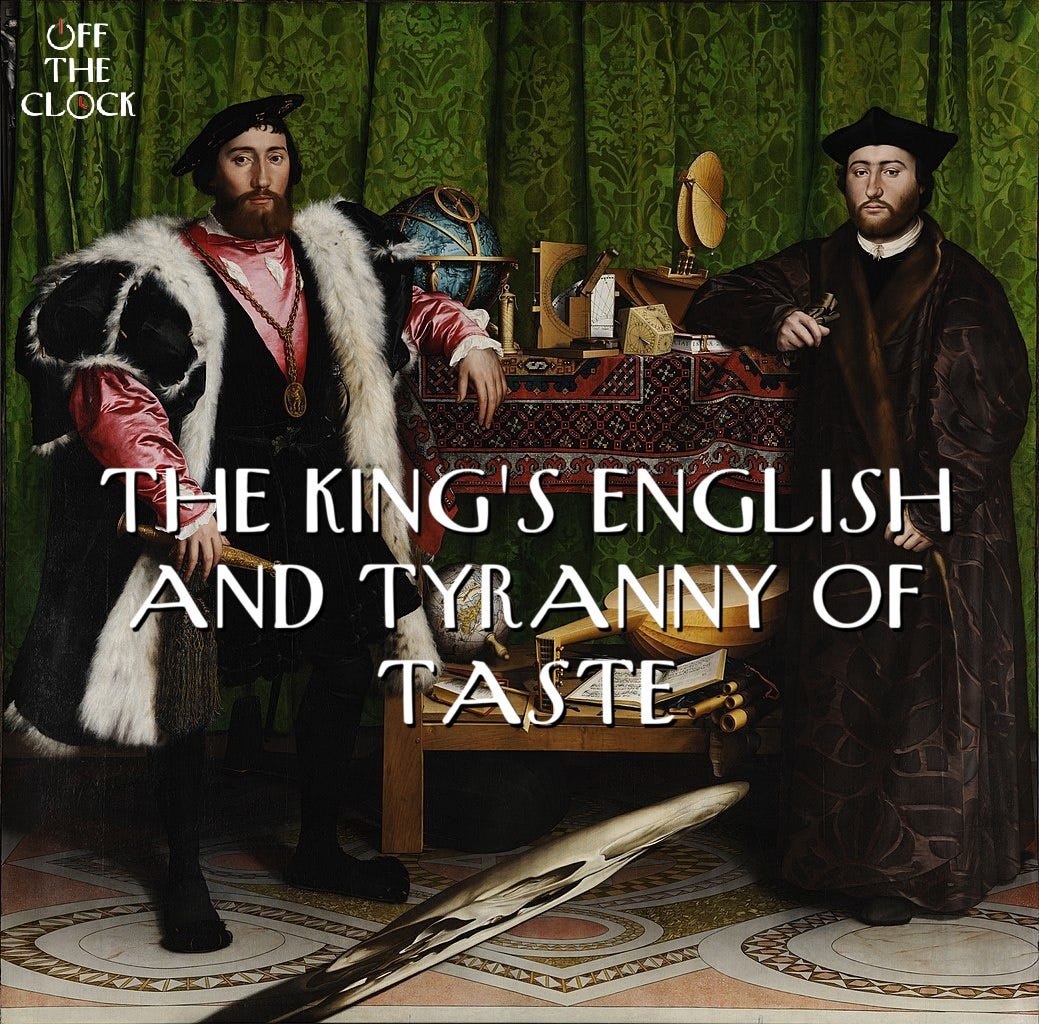Welcome to “Off the Clock,” a little something that lands somewhere between Timeless & Timely.
I send out this fun look at language and words every other Saturday as bonus content. If someone sent this to you, please consider subscribing.

“Writing is thinking. To write well is to think clearly. That’s why it’s so hard.”
— David McCullough, 2002
This weekend, as millions take to the streets in the “No Kings” protests — a nationwide movement rejecting the idea of unchecked power, the spectacle of coronation, and authoritarian ascendancy — we are reminded of the power of language. The protest slogan itself, “No Kings,” is raw, direct, unadorned: a refusal of royal trappings and a claim for democracy.
When H. W. Fowler and his brother F. G. Fowler published The King’s English in 1906, they offered more than grammar lessons. They issued a manifesto for honesty in prose: a rebellion against pomposity, pretension, and the “weasel words” that drained speech of its moral vigor.
Their creed was simple: to write clearly is to think honestly. They believed that style revealed the soul; that sloppy language betrayed sloppy thought.
More than a hundred years later, their admonitions read like dispatches to our own digital age — an era as noisy, narcissistic, and imprecise as the one they scolded.
Here are a few enduring highlights from The King’s English — lessons for those who still believe words matter.
1. Plain Words: The Republic of the Short and Simple
The Fowlers loathed verbal bloat. They ridiculed the bureaucrat who wrote,
“The state of Poland … has been of a far more serious nature than has been allowed to transpire.”
Their fix:
“More serious than has been admitted.”
Shorter. Sharper. Clearer.
“Every unnecessary syllable clouds the thought.”
The plain word, they said, is not vulgar — it’s democratic. The English language, like any healthy republic, works best when its servants speak plainly.
2. Mixed Meanings and Malaprops: The Comedy of Error
Every age has its verbal pratfalls. The Fowlers collected them like butterflies:
Perspicuity (clearness) for perspicacity (insight).
Complaisant (obliging) for complacent (self-satisfied).
Demean oneself confused with demean (to degrade).
“Precision is not pedantry, but the lifeblood of meaning.”
Each slip is a small act of unintended poetry — and a reminder that accuracy is the highest form of courtesy.





